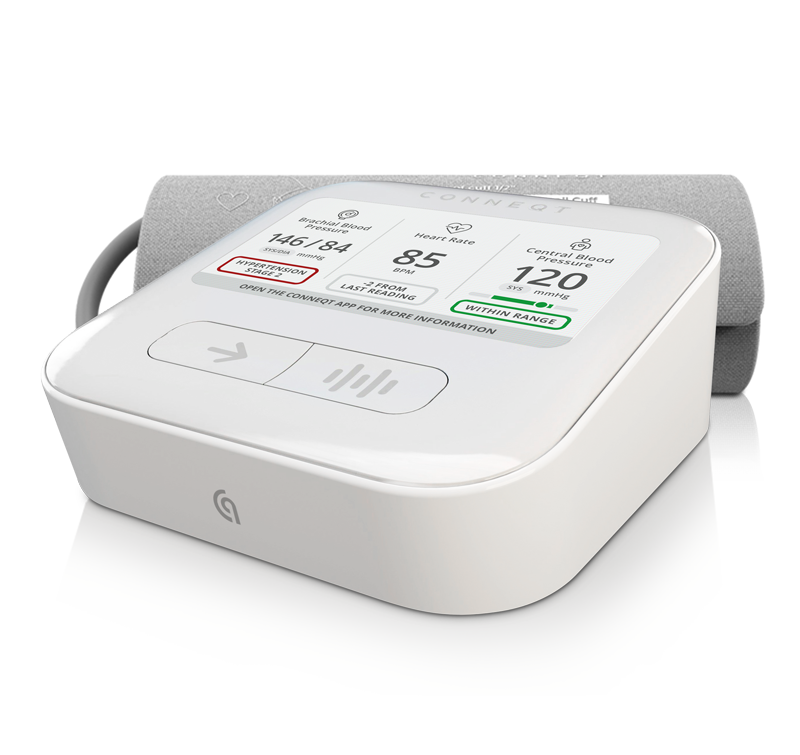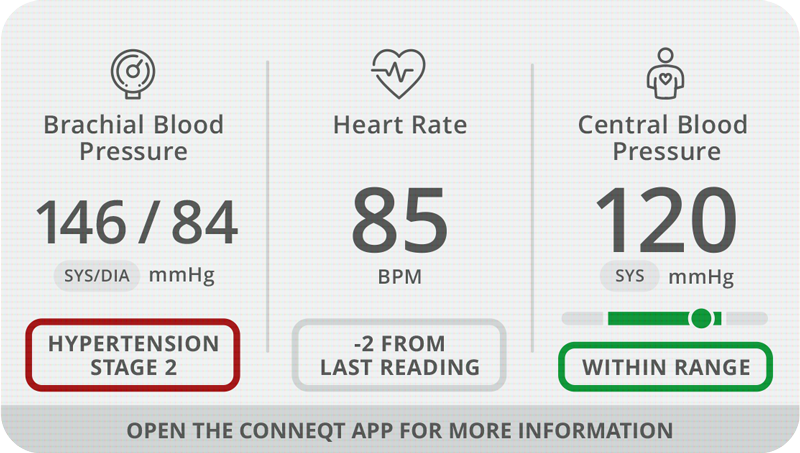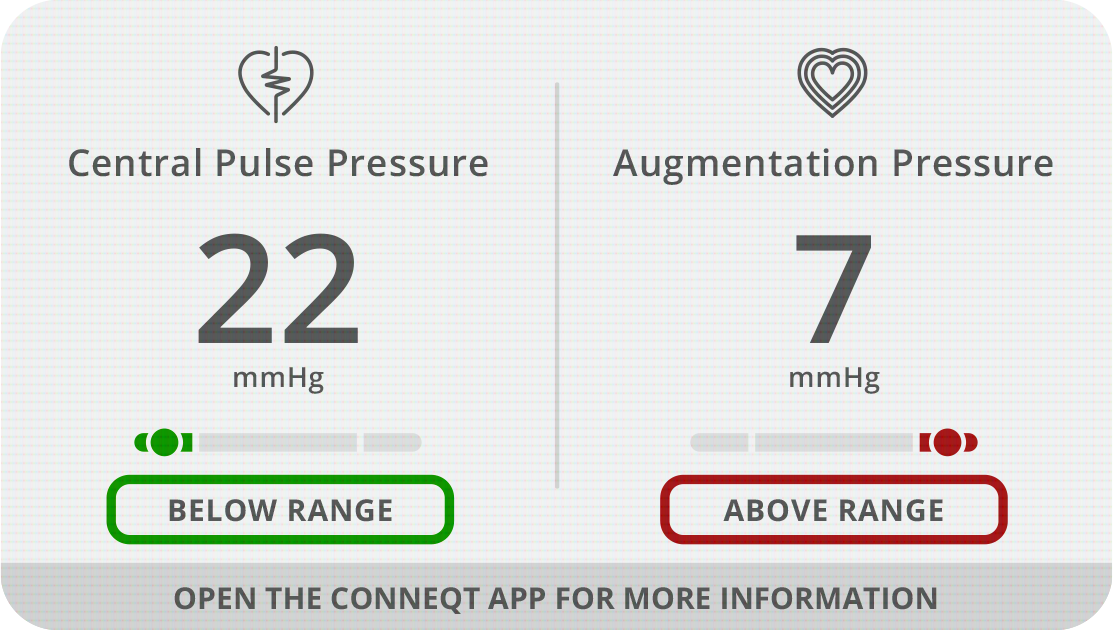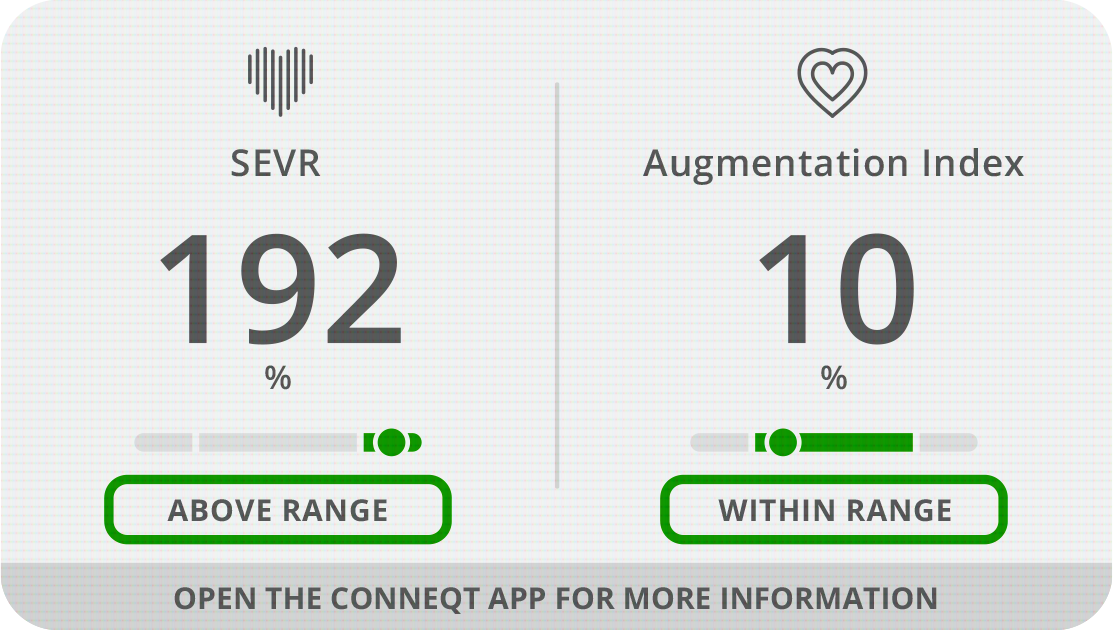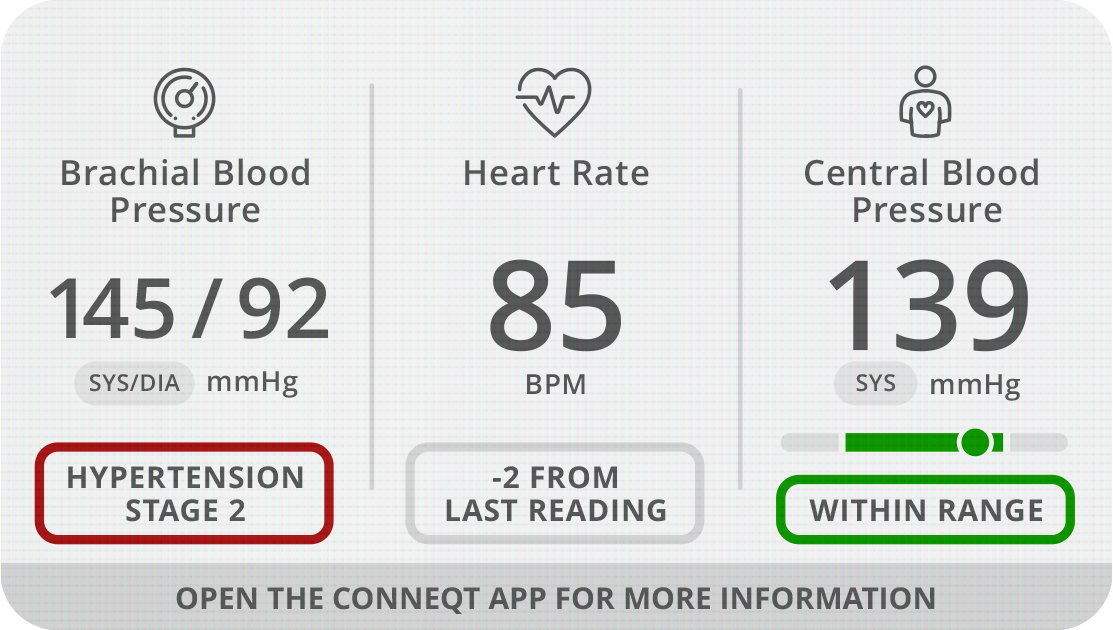A Revolution in Health Management
The CONNEQT Pulse is the first and only FDA-cleared medical device for comprehensive arterial health/Pulse Wave Analysis monitoring at home powered by over 20 years of cutting-edge, research validated technology. Experience the future of health management and take control of your well-being today.
Trustworthy Third Party Validation
This product meets the Validated Device Listing (VDL) criteria (as listed on validatebp.org) for validation of clinical accuracy, based on the independent review and acceptance of documentation submitted by the manufacturer.

The Technology
Revolutionizing cardiovascular health with cutting-edge technology
Pulse Wave Analysis (PWA), deciphers the hidden signals within each heartbeat to generate advanced vascular biomarkers, unlocking a new dimension of cardiovascular insights and revealing the future of your heart health.
Personalized to Your Health
The CONNEQT Pulse is the first customizable arterial health monitor which can be personalized to your individual health requirements.
Choose from multiple health parameters and customizable screens in order to optimize your viewing experience specific to your individual health needs. Whether your focus is on brain, heart, sexual, maternal, or kidney health, the CONNEQT Pulse can be customized specifically for those concerns.
